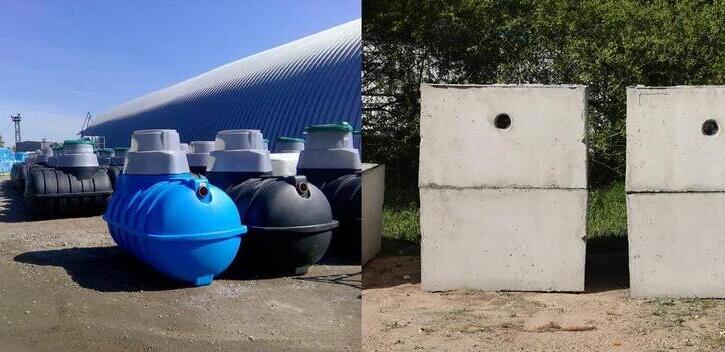Free Septic System Inspection ($99 Value) Free enzyme treatment, Financing Available
Request Service Now!
407-565-7044Free Septic System Inspection ($99 Value) Free enzyme treatment, Financing Available
Request Service Now!
407-565-7044
Selecting an effective septic tank for your home is crucial to managing waste efficiently and protecting the environment. This guide by Septic Blue of Orlando will explain the differences between plastic and concrete septic tanks, help you select which will suit you best, and address the importance of septic tank cleaning.
Before diving deeper into plastic and concrete tanks, it's crucial to understand septic systems. A septic system serves as an underground treatment structure for household wastewater; its components include a septic tank and drain field that digest organic material while simultaneously filtering out solids such as oils. Proper septic tank installation and maintenance by professional companies ensure maximum effectiveness and longevity for this solution.
Plastic tanks made of materials like polyethylene are increasingly popular due to their lightweight and flexible characteristics, making installation much simpler and less expensive than concrete alternatives. Furthermore, their resistance against cracking makes them particularly suitable in colder climates where freeze-thaw cycles could compromise concrete tanks is invaluable.
Although plastic tanks offer numerous advantages, they do have drawbacks as well. They are less durable than concrete tanks and may become damaged during installation or by heavy machinery on the ground above. Also, because they are lighter, they may shift within soil if improperly secured, leading to problems requiring professional septic tank repair.
Septic tanks constructed out of concrete are highly durable, often lasting decades when properly cared for. Their weight keeps them securely rooted to the ground, helping prevent shifting or structural damage risk and making concrete less susceptible to external pressures, which may damage them in return.
One major drawback to concrete septic tanks is their expense compared to their alternatives; their production can be more costly, and installation requires additional labor due to their heavy weight. Older concrete tanks may become susceptible to cracking or leaks over time, requiring repair work in some instances; periodic pumping inspections and pumpings of older tanks are essential to spot and address such problems early on.
No matter what kind of tank you select, proper care and regular maintenance are paramount for its proper function and operation. Septic tank pumping by an established septic company every 3-5 years, depending on its size and usage, should ensure solids do not accumulate to build up in your septic system and cause blockages or overflows that threaten its lifespan and cause blockages or overflows that compromise its capacity to store wastewater safely for processing by your body.
Regular septic tank pumping helps your system run more smoothly by clearing away build-up in its holding tanks of any accumulated sludge or sediment that accumulates, prolonging its effectiveness. A trusted septic company should offer this service so your system operates effectively for longer.
Regular inspections by an expert septic company can detect early warnings of leaks or blockages, and prompt repair can prevent minor issues from becoming major ones, saving both money and hassle in the future.
Before selecting either plastic or concrete septic tanks, consider these factors:
Selecting the optimal septic tank requires carefully considering both plastic and concrete models, considering your property conditions, consulting a septic company for advice about installation and upkeep, and cleaning it regularly to maintain the optimal functionality of any system. Cleaning must occur regularly regardless of which septic tank option is selected to keep any system functioning efficiently.
Yard care is a crucial aspect of property ownership. However, your outdoor spaces are not just for shade trees, flowers, and curb appeal. Your septic system is…
When homeowners think about vital systems that keep their houses running, septic systems rarely make the list. Although the HVAC system, plumbing fixtures, and a sturdy roof…
As a homeowner, you may wonder whether it is safe to drive or park over your drain field. This is particularly true if you plan to host…
Do you know what happens to the wastewater once you open the plug in your kitchen sink or flush the toilet? If you live off the main…